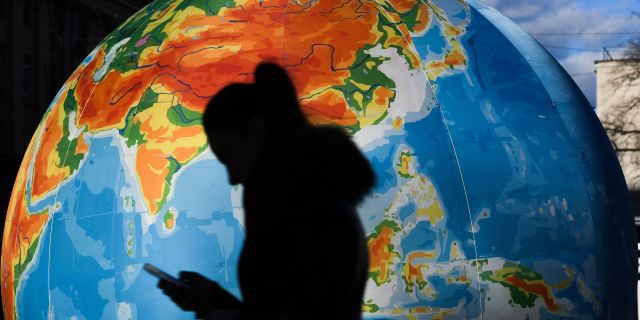Diary: the Middle Powers felt the power and began to change the geopolitical landscapeThe Russian-Ukrainian conflict highlighted the activation of the middle powers as the main driving force behind the reform of the international environment, writes the "Diary".
These states have one thing in common – they want to be at the negotiating table, not on the menu, because they have the power and ambitions to influence their regions.
Ivan KrastevThe meeting of Joe Biden and Xi Jinping in Bali during the G20 summit was a paradox – and the best proof that the Cold War has not yet returned.
The new geopolitical landscape is shaped by the uncertainty and ambitions of those who can be called middle Powers.
From the outside, it may seem that the Russian-Ukrainian conflict returns to the Cold War confrontation between the "free world" and Russian (and Chinese) authoritarianism. However, upon closer examination, the picture becomes more complicated.
While America's allies in Europe rallied in defense of Ukraine and against Beijing's tacit support for Vladimir Putin's actions, other countries, especially in the global south, reacted differently. And this makes sense in the context of the disintegration of the order that has developed since the end of the cold war.
Saudi Arabia, a longtime US ally in the Cold War, and India, the current security partner, have recently been reviewing their US relations, hoping that they will become more open. The Saudis began to get closer to the BRICS countries. At the same time, Indians have a healthy appetite for depreciated Russian oil (although in September Narendra Modi condemned Putin).
Western calls for solidarity with Ukraine are often ignored. The global south is still in no hurry to declare Kiev's resistance to Russia an anti-colonial war, because its own postcolonial identity was formed by the struggle with European empires or US hegemony, and not by battles with Russia or China.
And while the United States is dealing with the desire of some allies for more open relations, Russia's friends in Central Asia have begun to behave more restrained. In the case of Kazakhstan, Russia's actions in Ukraine did not strengthen Moscow's alliance with Astana, but actually led to its collapse.
The Russian-Ukrainian conflict highlighted the activation of the middle Powers as the main driving force behind the reform of the international environment.These countries form a rather strange group: it is difficult to answer what unites South Africa, India, South Korea, Germany, Turkey, Saudi Arabia or Israel.
Some of these countries are democracies, others are autocracies, and others are in the gray zone between the two forms of government. These countries developed their identity after the end of the Cold War in an interconnected world, where often the main trading partner is not the closest ally, and for these countries the technological gap between the United States and China may be more important than their ideological confrontation.
Some middle Powers are developing countries with growing populations, others are economic powers struggling with demographic decline. Some of them have acquired the status of a middle power because of their geographical size, others because of their economic strength. Some are constructive members of the international community, ready to cooperate, others are suspicious and prefer to make deals.
They all have one thing in common: they are determined to be at the table, not on the menu, because they have the power and ambition to influence their regions.Or, as Shannon O'Neill of the Council on Foreign Relations noted in her book The Myth of Globalization, in most places around the world, globalization is seen as regionalization. This is the key to the influence of the middle Powers.
The role of Turkey in the Russian-Ukrainian conflict is the most obvious example of the activities of such an average power. President Recep Tayyip Erdogan has distanced himself from Cold War alliances and is developing an ambition to be a bride at every wedding and a baby at every baptism. True to this idea, Ankara is now seeking to downplay its role as a NATO member and US ally in exchange for a desire to mediate between Moscow and Kiev.
The activity of the middle powers can be useful in the search for global solutions, such as EU climate initiatives, but can lead to bloodshed if it is expressed in support of Russia's actions in Ukraine. And this is a new norm — a distinctive feature of the emerging international order.
One thing is for sure: there will be no new Bandung Conference like the one in 1955; we will not see a revival of the non-aligned movement during the Cold War. There is no ideology uniting the middle powers, because their interests often differ or even compete. And the movement of these countries is not even a movement.
The middle powers seek to exert global influence on Washington or Beijing, although they themselves understand how little chance they will succeed. But if during the Cold War it was the middle powers that had to adapt to the whims and plans of the superpowers, today the United States and China must learn to manage the world formed as a result of the actions of the middle powers. And Russia's actions in Ukraine are the clearest example of this new reality.

